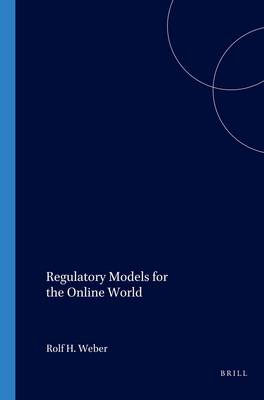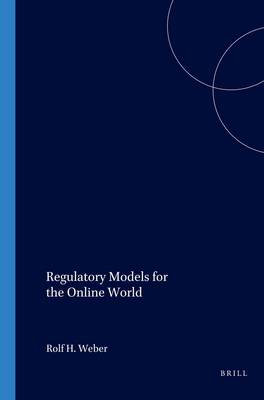
- Afhalen na 1 uur in een winkel met voorraad
- Gratis thuislevering in België vanaf € 30
- Ruim aanbod met 7 miljoen producten
- Afhalen na 1 uur in een winkel met voorraad
- Gratis thuislevering in België vanaf € 30
- Ruim aanbod met 7 miljoen producten
Zoeken
Omschrijving
Global networks have become a major political, economic, and legal topic in discussions among the participants of the "global community". Around the world, governments, legal scholars, and practitioners are in the process of developing theories in respect of the regulation of the online world. These attempts are usually based on a given national "legal culture"; this approach, however, underestimates the importance of an "umbrella" concept. The purpose of this study accordingly consists in the comparative discussion of basic regulatory models (traditional government regulation, international agreements, self-regulation, code-based-regulation) and in the evaluation of their merits related to different topics that play a role in the online world (market entry, access, infrastructure stability, intellectual property, privacy, bad content, etc.). An easy solution is obviously not possible; however, a detailed examination on a comparative legal basis can give some insights for future regulatory initiatives.
Specificaties
Betrokkenen
- Auteur(s):
- Uitgeverij:
Inhoud
- Aantal bladzijden:
- 207
- Taal:
- Engels
Eigenschappen
- Productcode (EAN):
- 9789041119650
- Verschijningsdatum:
- 1/10/2002
- Uitvoering:
- Paperback
- Formaat:
- Trade paperback (VS)
- Afmetingen:
- 152 mm x 221 mm
- Gewicht:
- 340 g

Alleen bij Standaard Boekhandel
+ 436 punten op je klantenkaart van Standaard Boekhandel
Beoordelingen
We publiceren alleen reviews die voldoen aan de voorwaarden voor reviews. Bekijk onze voorwaarden voor reviews.








